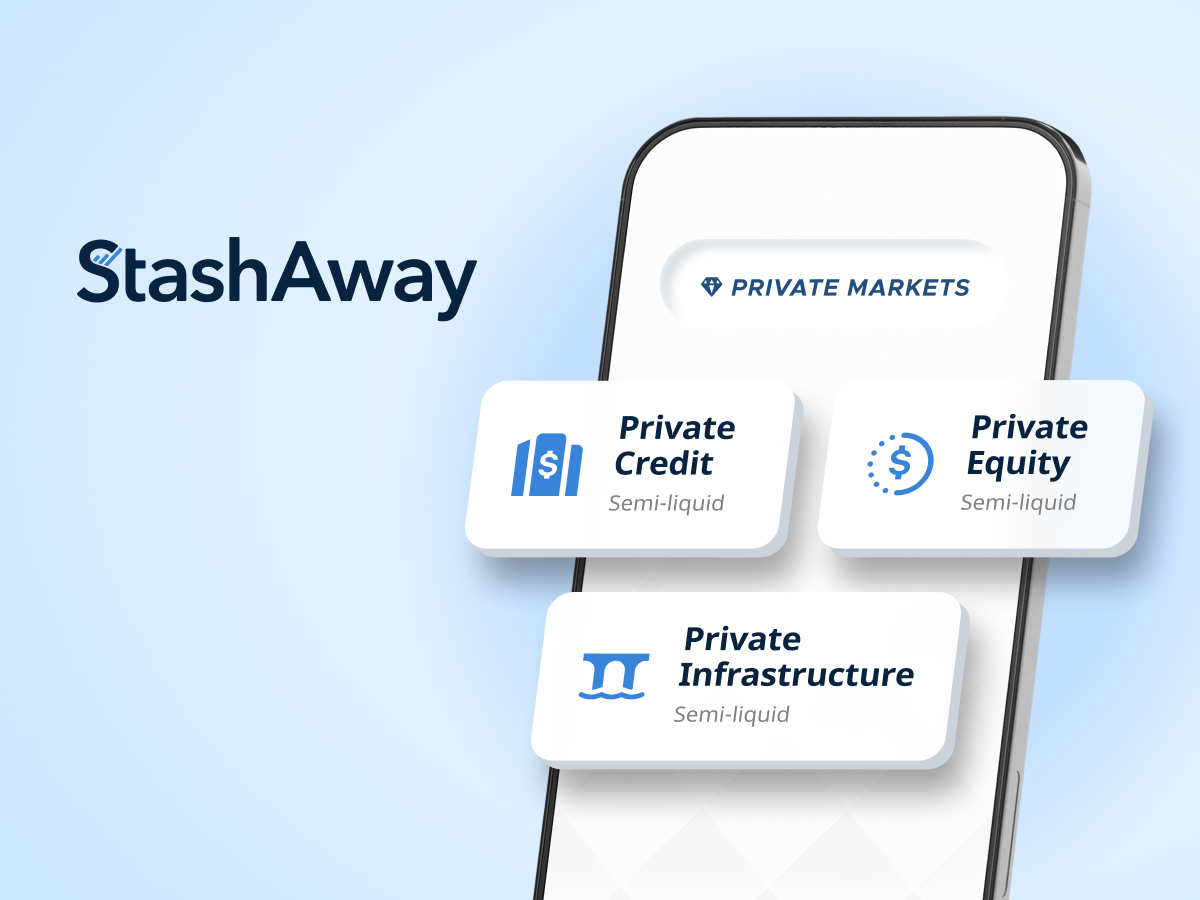Financial Features
Fostering Collaborative Financial Innovation for an Interconnected Future

By Srijith KN
Fintech encompasses more than just the convergence of finance and technology; it is an interdisciplinary field that intersects with various other disciplines, including law, sociology, and politics. To ensure the continued success of the fintech industry, adopting an interdisciplinary mindset and approach is imperative.
During my recent visit to Hong Kong, I encountered a diverse array of payment methods, including cards, cash, payment apps, and e-wallet top-ups. This experience highlighted that the realm of payments extends beyond the boundaries of finance and technology. Clarity in regulations and standards can significantly enhance global financial transactions, making them even more seamless. Collaborative efforts from diverse fields and across borders can improve the lives of individuals and bring added value to companies operating in the fintech sector. The collaborative nature of the fintech industry should be geared towards seizing opportunities rather than fixating on threats.
Implementing collaboration in the fintech space can be approached from two angles: cross-sector collaboration and cross-border collaboration. Cross-sector collaboration offers substantial value as it allows each sector to focus on its strengths, ultimately maximizing project efficiency. For example, the medical sector needs a seamless way to handle payments, there is a growing prominence for digital health records and telehealth. Today, fintech has even touched a farmer’s lives. Now farmers can use fintech solutions for crop insurance, digital payments and even accessing marketplace to sell their produce.
The digitalization of the supply chain industry using technologies like blockchain, and smart contracts will enhance traceability and transparency and would be a promoter for growth opportunities in the automotive sector.
On the other hand, cross-border collaboration is gaining prominence as the world becomes increasingly interconnected, and cross-border interactions among individuals are on the rise. The cross-border landscape is on the verge of significant improvements at both wholesale and retail levels, resulting in faster and more convenient payments.
Blockchain technology offers a pathway to interoperability, paying way for seamless collaboration between disparate payment systems. The pace of blockchain innovation, particularly in the field of tokenization, is expected to accelerate in the coming years. Use cases such as tokenized bonds have already moved beyond the proof-of-concept stage and are being adopted in real transactions. The utilization of blockchain-based payment methods, including stablecoins, wallets, and tokenized deposits offered by banks, is anticipated to increase.
As fintech continues its relentless expansion, transcending industries and international borders, a pressing demand arises for cooperation among governments, non-governmental organizations (NGOs), financial institutions, and technology pioneers. These collaborations often find their epicenters in innovative hubs like the DIFC Fintech Hive, transforming cities like Dubai into major international financial hubs. Well in Hong Kong too, I witnessed innovation hubs like Cyberport hosting over 2,000 startups within its digital ecosystem. And today we can confidently predict that the future of fintech hinges on a cross-disciplinary and sustained commitment to collaboration among these diverse stakeholders.

Financial
RETHINKING THE FUTURE OF VENTURE CAPITAL IN AN AI-DRIVEN WORLD

Dara Campbell, Senior Executive Officer, Hashgraph Ventures Manager
Venture capital isn’t what it used to be and that’s a good thing. The old playbook of “spray and pray,” waiting a decade for liquidity, and celebrating paper mark-ups is a thing of the past. In 2026, our industry is becoming faster, leaner, more intentional, and, ironically, deeply human.
We are standing at the intersection of the two most powerful technological waves of our generation: digital assets and artificial intelligence. This is not to say that these are the trending sectors for investment, but it is rather that funding the financial and digital infrastructure will define how value moves, how intelligence is deployed, and who ultimately owns the systems we will depend on.
We need to collectively acknowledge that programmable money and machine learning will be the drivers of the next generation of wealth. We are entering into an era where AI will help allocate, transact, and streamline capital in a faster and more efficient and adaptive way.
The most agile founders we see today are building with intent, efficiency, and transparency. They are building solutions in payments, logistics, supply chains, identity, and data ownership using real time AI infrastructure with blockchain rails underneath. When these two levels come together, you unlock productivity and scale in a way the traditional systems still can’t process.
Despite all this advancement, at its core venture capital remains a people-centric business. The biggest edge is access to conviction. When you meet a founder who can articulate why they are building something, not just what they are building, that’s where the signal lies. In my experience, the best investors will be those who can recognize that clarity early, match the founder’s passion, and stay in the trenches long after the initial cheque is written.
This is where the transformation is starting to show. As we move into 2026, we are also entering a new phase of infrastructure and DeFi 2.0. The dull layers – the rails, the protocols, the identity frameworks are becoming the foundation for this shift. From AI agents paying autonomously to real-world assets being tokenized at scale, these systems will underpin the next wave of innovation.
This is where Abu Dhabi is making strides on the global venture landscape. The emirate has rapidly emerged as a serious capital hub because it understands alignment. They are not replicating an ecosystem that’s been done before and has been successful – they are building something from the ground up that works for the region, for the new era of investors who are riding the wave of innovation.
The next generation of investors will be those who can successfully practice agility within the realm of regulation and who can integrate AI without compromising on the power of human instincts. The future of venture capital isn’t about replacing humans with machines; it’s about embedding systems in place where these two elements amplify each other. It’s a delicate balance, but that’s where the outliers are built.
Financial
The StashAway Story and the Future of Digital Investing

By Srijith KN, Senior Editor
Financial Integrator

StashAway’s journey began when Co-founder and CEO Michele Ferrario found himself frustrated and dissatisfied with the investment landscape marked by high fees and a lack of transparency. By age 35, his corporate career had provided him with substantial savings — yet when he approached his banks to invest in a portfolio of ETFs, he was sold expensive products that didn’t fit his needs.
This frustration inspired him to create a platform that would simplify investing while providing access to sophisticated financial products. In July 2016, he, along with the other two co-founders, came together, and by July 2017, after navigating regulatory requirements, StashAway was launched in Singapore.
“Stash,” as the word suggests—meaning to store something safely for future use—perfectly reflected what he wanted to achieve for himself. Over the past nine years, that personal need has grown into a company of more than 200 professionals, operating across five regions through a single, centralized technology platform.
Today, StashAway stands out as a pioneer in digital wealth management. The company leverages technology and deep investment expertise to offer accessible, low-cost alternatives to traditional wealth management, with a particular focus on private markets. Its approach has resonated with clients and positions the firm to benefit from regional economic growth and an increasingly digitally savvy population.
In the UAE, StashAway operates from the DIFC and has extended its presence to Malaysia, Thailand, and Hong Kong, with a chief investment officer based in Hong Kong overseeing investment strategies.
Democratizing Access to Investments
The company’s core strategy revolves around democratizing access to sophisticated investments. Private markets, which historically deliver higher returns at lower volatility, are central to this approach. By making private market products for a fraction of traditional minimums, StashAway removes the barriers that have long prevented high-net-worth individuals from participating in this fast-growing asset class. The platform also emphasizes transparency, with fees typically 50–75% lower than competitors, avoiding the hidden charges common in conventional wealth management products.
In public markets, StashAway offers an ETF-based, globally diversified portfolio called General Investing. The General Investing portfolio uses a proprietary investment strategy called ERAA (Economic Regime Asset Allocation). They have recently launched Sharia Global Portfolios, offering the same approach in a Sharia-compliant format. These Flexible Portfolios allow customers full control to create their own allocations using ETFs—either by using an existing template or building a portfolio entirely from scratch.
Capitalizing on the UAE Market
The UAE market presents a unique opportunity for StashAway. The region is home to a digitally engaged population with significant underinvested wealth. While 81% of financial wealth in the UAE is investable, nearly half remains in cash, losing value to inflation. StashAway’s platform appeals to a diverse range of clients, from seasoned executives to younger retail investors, aligning perfectly with regional growth initiatives like Dubai 2033, which targets strong GDP growth and population expansion.

A Comprehensive, Client-Focused Approach
What sets StashAway apart is its comprehensive, client-focused approach. Its offerings include globally diversified portfolios, flexible build-your-own options, Sharia-compliant solutions, thematic strategies, and access to private equity, infrastructure, and private credit for accredited investors. The platform’s investment philosophy is long-term, balancing risk and reward according to individual goals, while its high service standards ensure responsive client engagement. And thus far I have been having a frictionless digital experience and went through a quick onboarding process. Client acquisition is primarily driven online, with dedicated advisors for high-net-worth clients under StashAway Reserve. Other users can engage through the app and are supported by StashAway’s responsive client experience team through email, phone call, or WhatsApp.
Shaping the Future of Digital Investing
As the UAE continues to attract global wealth, its wealth management landscape is becoming increasingly digital, with affluent investors seeking alternative investment opportunities. In an industry often criticized for opacity and complexity, StashAway is redefining investing by making it more transparent, accessible, and tailored to the modern investor. By combining advanced technology, strategic insight, and personalized solutions, the company is not just managing wealth—it is shaping the future of digital investing in the UAE and across the region.

_________________________________________________________
The Brief:
StashAway is a digital investment platform that was launched in 2017 to empower people to build and protect wealth in the long term. Offering simple, intelligent, and cost-effective investment and cash management solutions, StashAway has led the way in transforming the way people invest and grow wealth. Today, StashAway operates in five markets, Singapore, Malaysia, Hong Kong, the UAE, and Thailand, with billions of dollars in assets under management. The company was recognised by The World Economic Forum as a Technology Pioneer in 2020 and ranked among CNBC’s World’s Top Fintech Companies in 2023, 2024, and 2025.
Financial
FASTER, MORE ACCURATE FINANCIAL REGULATION: HOW CAN 2026 UNLOCK REGULATION THAT SUPPORTS A FUTURE-READY ECONOMY

Author: Alan Blanchard, Business Development Director for TSO, has been responsible for digital transformation both as a regulator and consultant. In his current role he helps organisations to publish regulations more effectively.
In a rapidly evolving global regulatory and innovation environment, the resilience and growth of economies depends on their ability to adapt and innovate. The United Arab Emirates is widely recognised for its forward-thinking regulatory authorities, which consistently encourage the adoption of new technologies and work collaboratively with industry leaders to build new regulatory rails for exponential technologies that have yet to embed into the traditional business systems. As a future-ready financial hub, investment in digitisation of rules can help harness innovation and create growth.
Transparency: the cornerstone of market confidence
In the financial sector, regulation and financial frameworks serve as the backbone of market integrity and investor confidence, but the challenge today is sheer scale. Firms must keep pace with a near constant stream of rule changes across major jurisdictions, and the cost of financial crime compliance alone is about 206 billion dollars a year globally. Transparency and clear communication of these rules inspire confidence in markets. When regulatory expectations are accessible and consistently applied, market participants can plan, invest, and innovate with certainty. This confidence is essential not only for established institutions but also for new entrants, because when compliance becomes too complex and slow, entry drops sharply, as seen in the US where regulators approved only about five new bank charters per year on average from 2010 to 2023.
The policy and supervisory role of financial regulators has become increasingly complex. Rapid technological advancements, fintech companies, cryptocurrencies and globalisation mean that regulators need to continually adapt to protect consumers and the integrity of financial systems. The landscape demands agility and collaboration to effectively manage challenges. A significant barrier to transparency and innovation in regulation is the persistence of legacy formats such as PDF rulebooks and siloed regulatory handbooks. These formats can be difficult to search, interpret, and apply, particularly for new market entrants or technology-driven firms.
Modernising regulatory frameworks involves more than simply updating existing rules; it requires a fundamental rethinking of how regulations are designed, communicated, and implemented.
Unlocking regulation and moving to rules as code
Unlocking regulation means transforming legacy documents into machine-readable formats that make regulation easier to find, use, and understand. This shift not only lowers the barriers for new players but also supports RegTech solutions; technologies designed to streamline compliance, automate reporting, and provide real-time regulatory insights.
Machine readable rules and rules as code can deliver improved interoperability between firms and regulators, simplify change management, and remove barriers to entry for market participants. The first step is to convert legacy unstructured documents, such as PDFs, into more useful and manageable machine-readable formats such as XML, identifying headings, parts, sections and numbering and adding structure to the content. This structured content makes it possible to present the rules in different ways to meet the needs of regulated organisations, for example contextualising rules with a timeline of changes on a website, or publishing via an API to enable organisations to consume the rules as data.
As well as making rules easier to understand, structured data enables faster and more accurate editing workflows. Content can be managed at paragraph level, enabling relationships to be made and references to be added. Editors can self-serve using a Content Management System to edit content at a paragraph level and view the revised content immediately for proofing.
What this means for the future
Digitising and structuring regulatory information creates several tangible benefits. Firms can quickly and accurately understand their compliance responsibilities through improved search and better presentation of the rules that apply to them. Enhanced interoperability enables data sharing across different systems and institutions without manual reformatting. Machine-readable rules and rules as code create the possibility of automated compliance checks, better integration with RegTech solutions, and even the ability to simulate the impact of regulatory changes before implementation. An additional benefit of structured data is that it makes it easier for AI to use accurately, enabling large amounts of information to be summarised, connected and queried using day to day language.
The transition to digital, machine-readable regulations not only enhances transparency and efficiency but also fosters an environment conducive to innovation and growth. By leveraging structured content, regulation as code, and collaborative policymaking, regulators can create more agile, responsive, and user-friendly frameworks that better reflect the realities of financial markets today and in the future.
-

 Tech News2 years ago
Tech News2 years agoDenodo Bolsters Executive Team by Hiring Christophe Culine as its Chief Revenue Officer
-

 VAR10 months ago
VAR10 months agoMicrosoft Launches New Surface Copilot+ PCs for Business
-
News10 years ago
SENDQUICK (TALARIAX) INTRODUCES SQOOPE – THE BREAKTHROUGH IN MOBILE MESSAGING
-

 Tech Interviews2 years ago
Tech Interviews2 years agoNavigating the Cybersecurity Landscape in Hybrid Work Environments
-

 Tech News7 months ago
Tech News7 months agoNothing Launches flagship Nothing Phone (3) and Headphone (1) in theme with the Iconic Museum of the Future in Dubai
-

 VAR1 year ago
VAR1 year agoSamsung Galaxy Z Fold6 vs Google Pixel 9 Pro Fold: Clash Of The Folding Phenoms
-

 Tech News2 years ago
Tech News2 years agoBrighton College Abu Dhabi and Brighton College Al Ain Donate 954 IT Devices in Support of ‘Donate Your Own Device’ Campaign
-

 Editorial1 year ago
Editorial1 year agoCelebrating UAE National Day: A Legacy of Leadership and Technological Innovation











